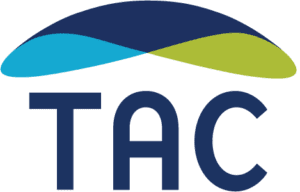Resources and Opportunities to Transform Behavioral Health Crisis Response
Policymakers in this historic moment are uniquely positioned to make changes that can improve the experience and outcomes of people who reach out for help during a mental health emergency. To support federal, state, and local efforts to use new resources effectively and incorporate current understandings of appropriate behavioral health response, TAC has released two new publications.
In the context of new federal funding policies and the upcoming launch of the 988 behavioral health crisis line, Federal Policy Recommendations to Support Implementation of Medicaid-Funded Mobile Crisis Programs, by TAC consultants John O’Brien and Vikki Wachino, Senior Associate Jordan Gulley, and Executive Director Kevin Martone, identifies important issues in mobile crisis implementation and describes ways that federal agencies can support state and local efforts. This brief also identifies legislative opportunities for Congress that would support states in fully implementing mobile crisis teams.
Mobile Crisis Teams: A State Planning Guide for Medicaid-Financed Crisis Response Services, by Senior Associate Jordan Gulley, Human Services Director Francine Arienti, Senior Consultant Rebecca Boss, Senior Associate Alicia Woodsby, and TAC consultant Vikki Wachino, reviews requirements of the American Rescue Plan Act (ARPA) and identifies planning considerations for developing or refining mobile crisis services that qualify for the enhanced Federal Medical Assistance Percentage (FMAP) under ARPA. While the primary focus is on mobile crisis, this guide also highlights state considerations that will support a more robust crisis continuum in preparation for the launch of 988.
These papers were developed with support from the California Health Care Foundation and Charles and Lynn Schusterman Family Philanthropies.
TAC Offers Technical Assistance and Training to Direct Service Providers
TAC has increased its capacity to support the professional development of direct service providers at behavioral health, health care, and homeless housing providers and programs across the nation. Our technical assistance and trainings for service providers emphasize evidence-based practices, engagement, and delivery strategies for individuals with behavioral health needs. This work builds on TAC’s longstanding policy and system-level work with states, communities, and stakeholders to develop, finance, and implement effective community-based services and affordable housing with supports for people with behavioral health needs and those experiencing homelessness.
Recent and upcoming engagements include trainings for behavioral health and homeless providers on interventions such as crisis response, harm reduction, motivational interviewing, trauma-informed care, case management, and housing-related services and supports. TAC offers these trainings through a variety of modalities for staff who are new to the field as well as to more advanced audiences.
In addition, TAC continues to build system and provider capacity for quality service delivery through TA and coaching support on interventions like permanent supportive housing, supported employment, and peer service delivery, as well as providing support for the broader workforce to prevent burnout and promote self-care ― an ongoing need that has become especially important during the pandemic.
To learn more, reach out to Associate Jennifer Ingle at jingle@tacinc.org.
TAC Staff in Action
An interview with Executive Director Kevin Martone was featured in “Homelessness and Crisis: Who Will Answer the Call?” for the #CrisisTalk blog; Kevin also joined Human Services Director Francine Arienti in co-authoring a brief on “Mental health system development in rural and remote areas during COVID-19,” now included in the new U.S. Substance Abuse and Mental Health Services Administration (SAMHSA) compendium Ready to Respond: Mental Health Beyond Crisis and COVID-19; Together with partners at Policy Research, Inc., Director Lisa Sloane and Senior Associate Rachel Post prepared Applying New COVID-19-Related Funding to Address the Housing Needs of Individuals with Serious Mental Illness, Substance Use Disorders, and Co-occurring Disorders, a new toolkit (available in English and Spanish) for SAMHSA’s Homeless & Housing Resource Center (HHRC); Together with Senior Associate Alison Korte, Rachel will also lead a 3-part learning community for HHRC on “Supportive Housing Models that Work”; and Director Lisa Sloane now represents TAC on the National Stakeholder Group for the Administration for Community Living Housing and Services Resource Center, which fosters cross-sector partnerships among service providers and systems related to housing, homelessness, behavioral and mental health needs, and independent living.


